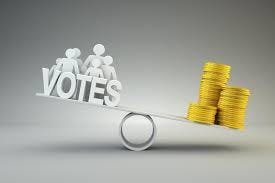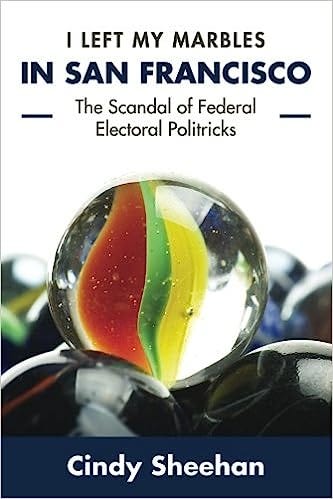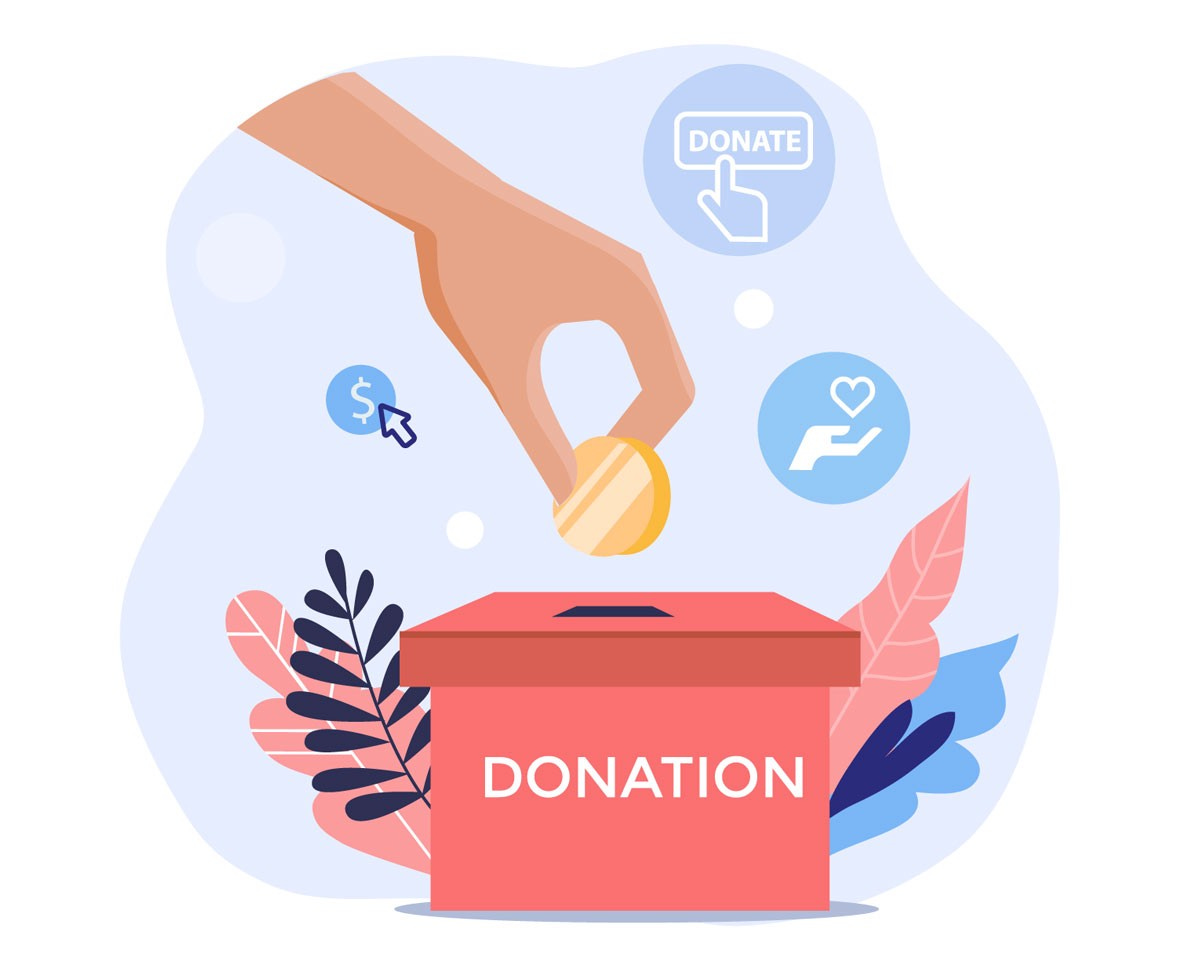While the US maintains wars and about 1000 Imperial Military Outposts around the world to spread “democracy,” the process of elections in the US mocks the very notion of people-centered politics and gives priority to those that already have all the privilege of “democracy,” without any of the responsibilities.
If you're a political beginner, or seasoned voter, it can seem daunting to navigate the world of American politics. We are indoctrinated that one of the most fundamental aspects of deMOCKracy in the U.S. is the “right” to vote, but has the act of voting been corrupted by profound systemic issues? In this ‘stack, I’ll expose the top 10 reasons why voting in the United States is a sham (you may have more reasons). From gerrymandering to voter suppression, you'll learn about the ways in which your voice at the ballot box might not be as impactful as you think.
Besides, this country is NOT run by politicians who should be beholden to the will of their constituents, but by un-elected billionaire weirdos, sexual predators, and bureaucrats, who have detrimental influence over legacy media and social media, online data, medicine, health, food, air, water, energy, war and peace, economics, (in)justice, “free” speech, etc, etc, etc. You know, just the very things that are fundamental to our lives. You have one vote? They have billions, and billions, and billions, of them.
1. Gerrymandering: Gerrymandering is the process of manipulating voting districts to benefit one political party over another. This results in uncompetitive races and ineffectual representation. Districts are often drawn in convoluted shapes that divide communities with similar interests. Politicians now choose their voters, instead of the other way around, leaving the people powerless over their own democratic representation.
2. Voter ID Laws: Voter ID laws may sound like common sense, but in reality, they disproportionately affect low-income and minority voters who are less likely to have access to photo IDs. These laws are often fueled by racial bias and serve as a subtle form of voter suppression, making it harder for certain groups to participate in the democratic process.
3. Closed Primaries: In many states, only registered party members can participate in primary elections. This leaves independent voters, who make up a substantial portion of the electorate, with no voice in the vital early stages of the electoral process. Closed primaries further polarize an already divided political system by cutting off opportunities for voters to cross the aisle and support different political candidates.
Here in California, (with the exception being POTUS elections), and a handful of other states, the establishment has further rigged the primary system to guarantee that the only the Top Two vote getters (always a Democrat and a Republican, rarely, if ever, a 3rd party or independent) move on to the general election. This strategy eliminates candidates outside the duopoly, and the participation of many voters who don’t like the two-party dictatorship.
4. Corporate Money and the Election Industrial Complex: The corrupting influence of money in politics has been widely documented, with corporate donors funneling money into political campaigns to influence their outcome. This results in politicians who are more loyal to their corporate donors than to their constituents, further eroding the credibility of the democratic process.
Political spending in the 2020 election totaled $14.4 billion, more than doubling the total cost of the record-breaking 2016 presidential election cycle. That's according to OpenSecrets' analysis of Federal Election Commission filings.
5. Voter Suppression: Voter suppression comes in many forms, from purging voter rolls to limiting early voting hours. By targeting specific groups of voters, whether based on race, age, or political affiliation, this tactic undermines the basic principles of true democracy and silences the voices of millions of Americans.
In addition to obvious voter suppression, the Democrat National Committee have “Super Delegates” that can, and do, erase the will of the people. However, with the prevalence of agitprop, it’s “weird” that the “will of the people,” mostly imitates the “will of the billionaires.” Strange how that happens?
6. Limited Ballot Access: In many states, third-party candidates face enormous hurdles to getting on the ballot, such as having to collect thousands of signatures in a short period of time. This effectively limits the choices available to voters and further solidifies the dominance of the two-party system.
When I ran against Nanny “the Town Drunk” Pelosi in 2008, our campaign had to collect about 25k signatures to get on the general election ballot as I was running as an independent. Admittedly, it was a struggle, and we had a small army of volunteers out in San Francisco collecting signatures. We were running to City Hall many times a day to turn in signatures, and I was even using their computers to validate the signatures before we turned in the petitions, because I am sure they were arbitrarily invalidating many of our signatures. We qualified on the last day, and I almost felt like dropping out at that point, because I feel like that achievement was already quite a victory (we partied that day).
For more of my observations about that election, and the process in general, check out my book:
CLICK PHOTO FOR MORE INFORMATION
7. Electoral College: The Electoral College is a system that routinely allows the candidate with fewer popular votes to win the presidential election. This antiquated system was created in a time when only white, male property owners were allowed to vote. Today, it's a vestige of a bygone era that continues to undermine the idea of "one person, one vote."
8. Misinformation Campaigns: In the current political climate, misinformation campaigns run rampant. From fake news stories to deep-faked videos, it's becoming increasingly difficult to discern truth from fiction. Disseminating false information can sway public opinion and therefore, influence the outcome of elections. This undermines the validity of the democratic process.
9. Foreign Interference: In recent years, foreign actors have been accused of interfering in U.S. elections.
One of the complaints that I routinely received when I was traveling the planet, for peace, is that they didn’t get to vote in US elections, when the US had so much influence (primarily negative) over their lives, so, I am sure that some foreign influence and money are spent, because everyone wants peace and prosperity and some see the USA as a roadblock to those things.
However, probably the most insidious entity that meddles in the elections in the US is Israel—ensuring that almost 100% of elected officials routinely vote for more foreign aid to Israel, a country that has more social programs for their citizens than we have here in the U.S. Also, this guarantees that Israel’s crimes against the people of Palestine are never properly addressed.
10. Winner Takes All System: Finally, the "winner takes all" system further marginalizes minority voices. In a system where only one candidate can win, a significant percentage of the population ends up without representation. This results in politicians who are less likely to represent their constituents and more likely to play to their donors or their own political ambition.
In most parliamentary systems, representation is figured out on percentage of votes candidates receive, so there are many different parties and philosophies represented, which gives voters more influence.
These are just ten of the many reasons that the act of voting in America has been corrupted. It's not that voting doesn't matter, but that this system of deMOCKracy needs significant reforms to ensure that it works for all Americans, and by extension, the rest of the world. It's important to be aware of these issues to fully understand the extent of the problem and advocate for change. By recognizing the ways in which the democratic process is being undermined, we can better fight for real solutions and work to return power to the people, where it rightfully belongs.
I would never presume to tell anyone what to do—vote, or abstain; donate your hard earned scrilla to political campaigns, or spend it on groceries; it’s up to you. Political beginners would do well to begin your political activism locally where it can do more good.
Or, on the eve of Independence for White Male Property Owners Day, we can start a revolution?
What do you think?
Thanks for being a loyal reader of Cindy Sheehan’s Soapbox, we need your financial help if you are able.
We have different tiers of support: $5/month; $50/year, or $100 as a founding member.
Checks/money/orders/cash/etc can be snail-mailed to:
Cindy Sheehan’s Soapbox, LLC
PO BOX 6264, VACAVILLE, CA 95696
PayPal: cindysheehanssoapbox@gmail.com









Notice how both parties ignore that electronic voting is PROPIETARY AND CLOSED SOURCE, meaning that it's not about hacking, but the freaking company that made the software can easily rig counts without a trace.
No, instead you got pundits crying about mail in ballots, hacking, and illegals.
Idiotic, perhaps by design.
"However, probably the most insidious entity that meddles in the elections in the US is Israel—ensuring that almost 100% of elected officials routinely vote for more foreign aid to Israel, a country that has more social programs for their citizens than we have here in the U.S. Also, this guarantees that Israel’s crimes against the people of Palestine are never properly addressed." This may be the single most important element in many ways in our s-elections and explains the love of Zionism in this country and the influence pro Israel voters and wannabee presidents have on the rest of us. Of course any candidate who did not support Zionism would NOT have a chance in hell, eh? So perhaps a candidate genuinely criticizing Zionism and the US monetary and missile support of Israel calling them out as a "Bully Democracy" - would be a very interesting election. Has any candidate in the last 50 years ever not supported Israel? (Excellent fluent and hard hitting article Cindy)